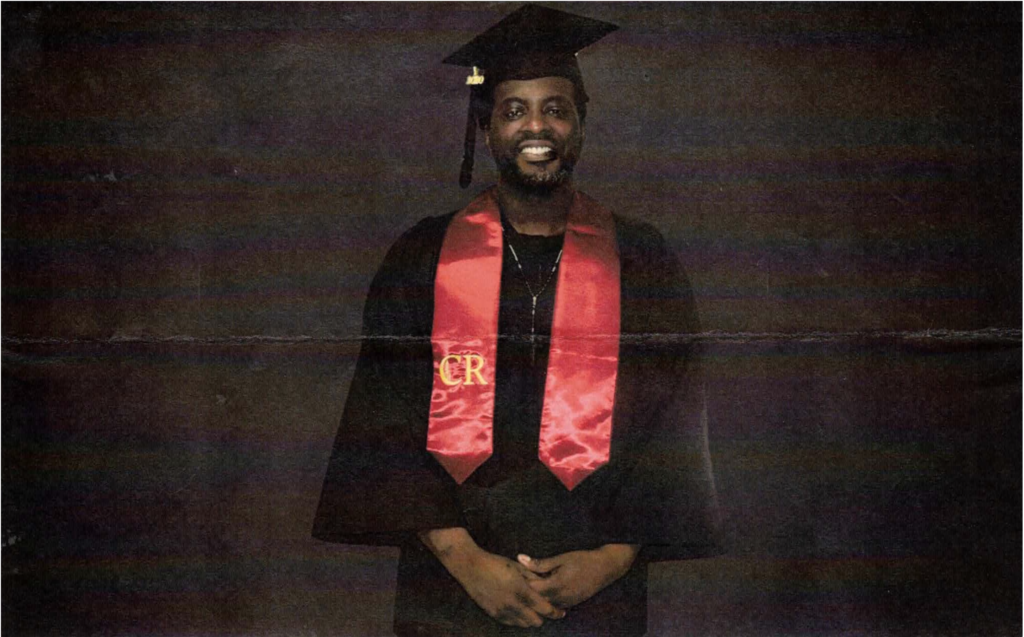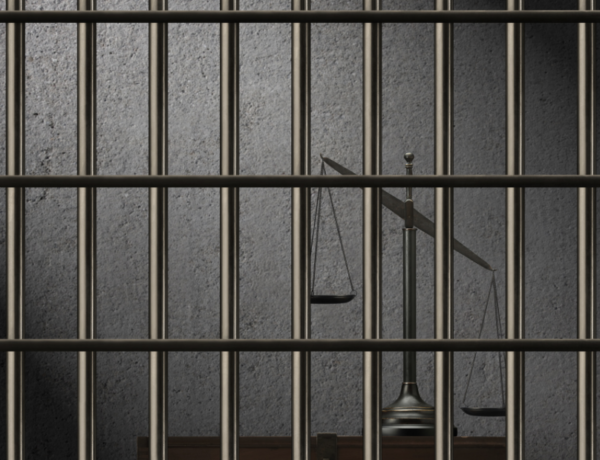The way I lived my name was synonymous with “dysfunctional.” I have spent 26 years of my life incarcerated. If I add the 6 years spent in foster/group homes, then I’ve spent 32 of my 39 years some place other than home. Being placed in State custody was a dysfunctional part of my life I had no control over. The dysfunctional part of life that I caused, I take full responsibility for. Some folks may question if an individual incarcerated all those years could truly be rehabilitated and live a productive life from here on out. The short answer is “Unequivocally yes!” I’ll explain how I changed while remaining in the same dastardly environment that was once the site of my demise.
Changing is extremely difficult and requires a mental toughness like none other. I had to change not only myself, but the culture I once revered. That culture influenced my thinking, which led me to blaming others for my actions, acting out angrily, and disregarding authority. I wanted to create a new culture consisting of morals, responsibility, integrity and respect. Before I did that, I had to “want change” and—boy, oh boy—I wanted change desperately. Wanting change is vital because it doesn’t matter who speaks to you or how many self-help classes I completed, if I didn’t “want change” then I would have never done it. In conjunction with wanting to change there’s a motivation that had me willing to do whatever it took to revise.
Since being diagnosed with depression at age 10, I was paraded to different psychologists. I rebelled and acted disrespectfully, thus never receiving proper treatment. Instead, I self-medicated. I realized that I needed help with my mental health, and I reached out. I put my ego aside and allowed treatment from a psychologist. I still receive counseling and I take medication. Everything takes place in the mind so making sure my mental health is well has helped me tremendously. Through therapy, I had to be transparent. I analyzed myself through an honest lens which was introspection. I peeled back layers discovering who I was and why. I saw the damage and began to revise myself. By doing this, I was able to locate what I needed to work on. Here’s an example: I never knew I had abandonment issues, but it explained my distrust for others, my anger and wanting to be accepted by people. I learned to forgive my mom, who battled addiction, and Grandma, who couldn’t take care of me. I forgave the foster mom who mentally abused me and my dad, who was in and out of prison. (I learned my dad committed crimes to feed the family.) I also forgave myself for all I’ve done. That liberated me and allowed me to move toward repairing what I had damaged.
One skill I learned is being mindful; for an impulsive individual like myself, mindfulness is perfect. I was taught how to actually think instead of relying on instinct which was negatively influenced. I never knew I wasn’t actually using my brain. From mindfulness courses, I was taught to “think about thinking.” This allows me to process the situation and see the best course of action for what it may be. By practicing mindfulness, my conscious mind became revised and critical thinking became normal. The more I use my skills, my subconscious mind started to adopt these habits. I believe it’s just important to cleanse the subconscious mind.
My favorite self-help book is “The Four Agreements,” but other self-help books I like may focus on a certain aspect of our lives. I learned from one of them that education is pivotal to transformation. Empowerment, Education and Consciousness are what I learned to live by. College provided a wealth of knowledge. Regardless of what I learn, it helps me in all-around understanding. Once I began learning, I had no excuse to act ignorantly any longer. Plus, I don’t want to act uneducated any longer; it’s pretty awesome when I’m educated. The old mantra, “You do better when you know better,” is certainly true. College, I can say, changed my reality. Also, my self-esteem is high, and I have hopes of being successful post-release. With my degree in Behavioral and Social Sciences (Class of Spring 2020), I have paved a way to doors that were once locked but now are ajar. I have an obligation to help others, but “struggling youth” is my calling. I was once a struggling youth and I know how to reach those who act out. By earning my degree, I put myself in the best position to be allowed inside juvenile halls. By earning a degree, I am now one of the people who dropped out of high school and still graduated college. The moral of this story is, “With extremely hard work anything is truly possible.” The youngsters need to hear my story because most of their story was also mine.
In conclusion, there are many variables which came together and assisted in my transformation. Having support from loved ones, advocates, sponsors and mentors was essential in my journey. When I heard my mother say she was proud of me, I first realized my mom had never said that to me before. I finally gave her the opportunity and it touched me like nothing ever had. I have an advocate who supports my endeavors. I literally needed her assistance with paying for books among other academic courses. I completed life-altering goals because of her. She sees my transformation and is extremely proud. One day she told me I was a role model for her kids. I never told anyone, but I shed tears after reading that. It let me know just how far I’ve come. Being in this artificial world is tough and outside support is huge in bringing about change. I am so grateful for them all. This paper is to give an idea about how I changed. This is my story and while everyone may have their own, the gist is: change is very possible.






No Comments